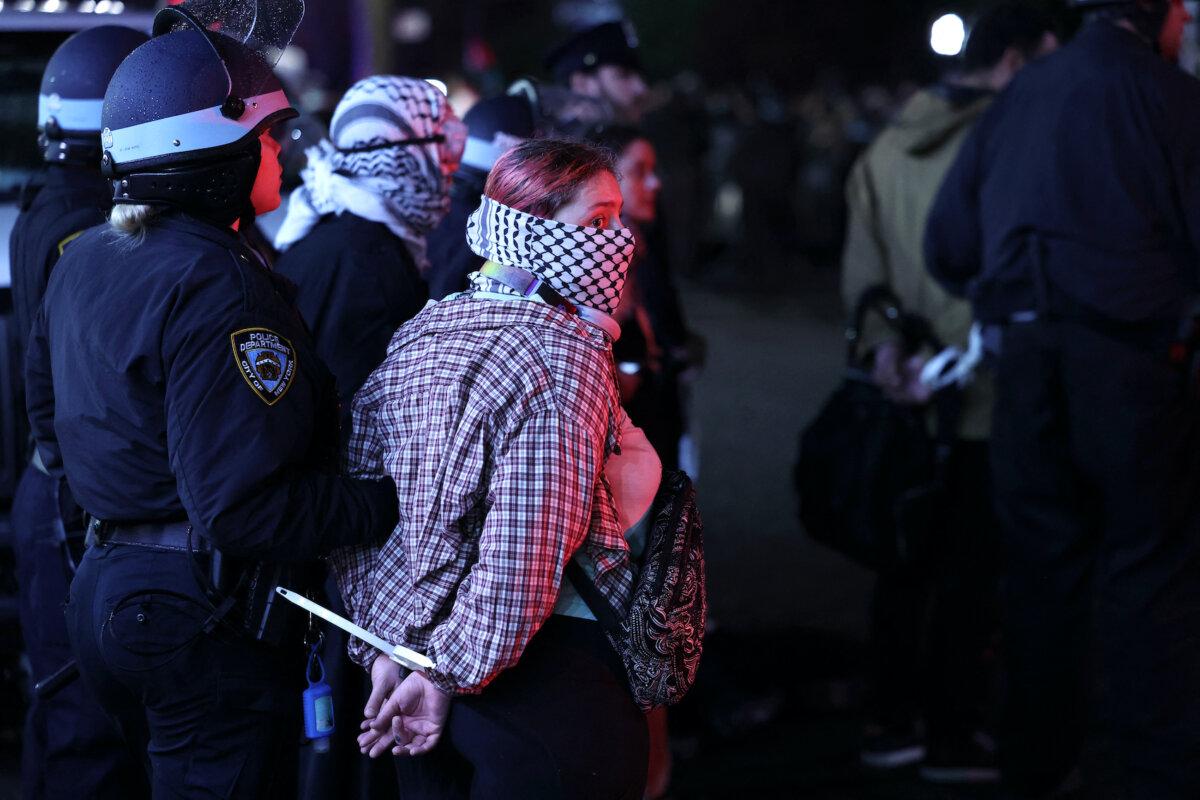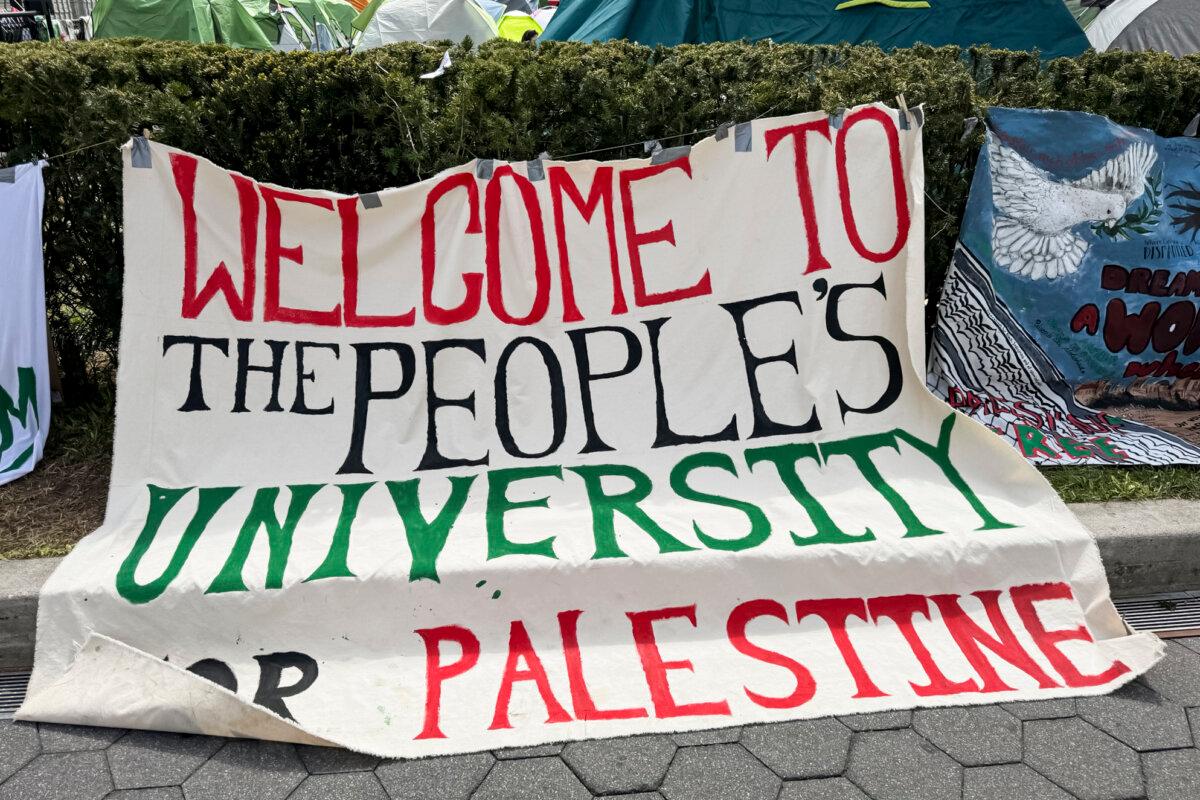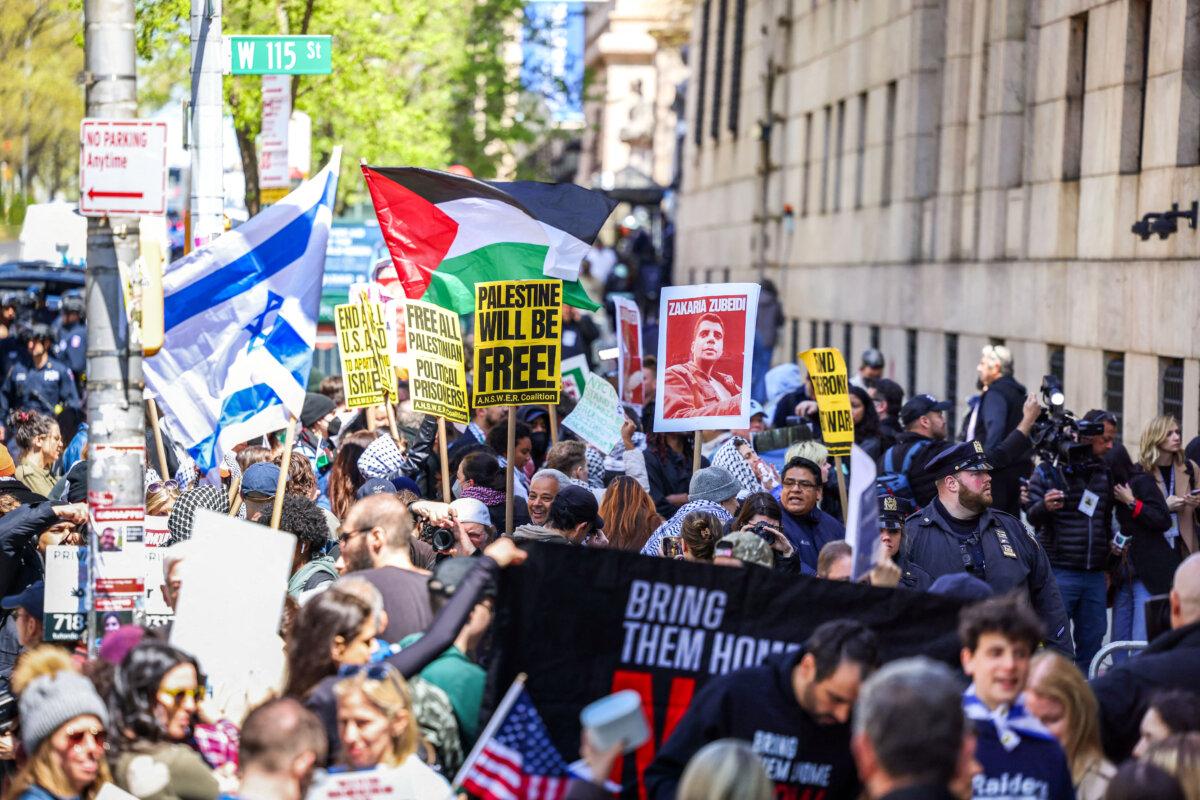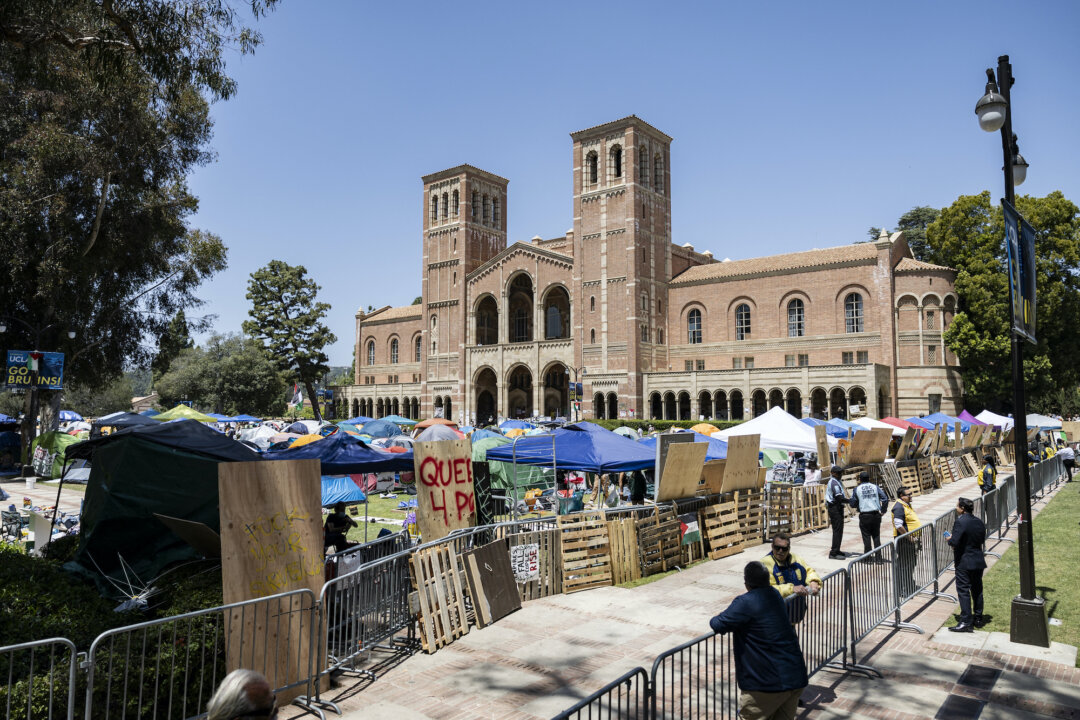The Chinese Communist Party exploits American civil unrest to divide the U.S. society; the pro-Palestinian campus protests are the latest example, experts say.
China’s communist regime is using the pro-Palestinian campus protests to discredit the U.S. government and amplify social divisions. This online activity, experts say, is part of China’s information warfare or psyop—psychological operation—to weaken the United States by causing Americans to fight each other.
Researchers have traced such Israel–Hamas war-related campaigns to a multi-year online influence operation known as “Spamouflage” or “Dragonbridge,” which Meta found had links to Chinese law enforcement.
Meanwhile, Chinese propaganda and officials accuse the U.S. government of having “double standards” and being “hypocritical.”
Along with a montage video of police arrests on various campuses, Hua Chunying, spokesperson of the Chinese Ministry of Foreign Affairs, implied on social media that the United States was handling protesters in the same way that it has criticized other countries for.
According to H. Colleen Sinclair, a Louisiana State University associate research professor specializing in misinformation and methods, China uses a false equivalency—equating the U.S. arrests of protesters to the Chinese Communist Party’s (CCP’s) persecution and silencing of its own people—to say that the United States doesn’t have the moral authority to criticize Beijing’s human rights record.
“It’s just a form of distraction: ‘whataboutism.’ It also further amplifies any political divisions or polarization that there might be in a particular culture,” she told The Epoch Times.
Referring to the CCP, she continued, “They are always looking for things that make the United States look unstable, unable to be trusted, and hypocritical.”

CCP Propaganda Highlights ‘Internal Divisions’ in US
On April 17, Columbia University students started protesting by camping out on campus, demanding their schools call for a ceasefire in Gaza and divest from all Israeli institutions and Israel-aligned companies. They called the Israel–Hamas war genocide of Palestinians, an accusation that the Israeli government has repeatedly rejected.
A day later, police began arresting protesters at Columbia. Students vowed to stay on until the university met their demands. As the negotiations between the school and students broke, the tension escalated. The encampment protests at Columbia inspired more students at a dozen other colleges to do the same.
In an April 24 editorial, state-run media China Daily described the situation as a “disconnect” and “internal divisions” between elites and ordinary citizens in American society.
“The US’ airdrop of aid for Gaza, and the conflict between US law enforcers and the US students and teachers are both ugly shows” of “contradictory foreign policies of the US,” the editorial continued.
Yao-Yuan Yeh, professor of international studies at the University of St. Thomas in Houston, said that the CCP wants to paint a picture of the United States in chaos to justify its “stability maintenance”—its authoritarian approach to sustain its rule of China.
“As a long-term cognitive warfare to the United States, what the CCP wants to achieve is to use the pro-Palestinian protests to show America as a country in crisis at home with racial and religious divides and democracy as a bad form of government,” Mr. Yeh told The Epoch Times.
Ms. Sinclair pointed out that during the Black Lives Matter protests in the summer of 2020, the CCP deployed a similar propaganda narrative to make democracy look bad. According to her, the CCP also “exploits civil unrest” to “further polarize our society.”
“Once we’re more divided, then we’re fighting amongst ourselves. And they don’t even have to engage in any sort of kinetic warfare; we can engage in that warfare amongst our own citizens,” she added. “This is what information warfare is.”

‘An Incredibly Successful Psyop’
According to Graphika, Spamouflage’s political disinformation campaigns began in the summer of 2019. The disinformation research firm observed the operation’s surge in English content in early 2020, starting with praise for Beijing’s handling of the COVID-19 pandemic and moving on to attack U.S. foreign policies and policies against TikTok as tension rose in U.S.–China relations.
In August 2023, Meta removed over 7,000 inauthentic Facebook accounts and a smattering of Instagram accounts linked to Spamouflage. However, the operation simply sprawled through other fake accounts.
“Spamouflage appears easily able to reconstitute itself after its accounts are taken down from social media,” Max Lesser, a senior analyst of emerging threats at the Foundation for Defense of Democracies (FDD), a Washington-based think tank, told The Epoch Times in an email. “Why? Pre-positioned, dormant ‘sleeper accounts’ lie ready and waiting to be activated by operators.”
Mr. Lesser’s research identified a Facebook page called “The War of Somethings,” a previously unrecognized component of Spamouflage. One of the unauthentic accounts commented on a video about the Israel–Hamas War, “America is the warmonger, the Jew’s own son!”
While Mr. Lesser focused on Facebook, Rutgers University’s report in December 2023 showed that pro-Israel content is suppressed on TikTok, a short-video platform under a deadline to be sold by its Chinese parent company or be banned in the United States according to a new law.
Institute for Strategic Dialogue, a global advocacy nonprofit focusing on reserving disinformation, reported last year TikTok continued to host pro-Islamic State propaganda.
Clemson University’s Media Forensics Hub also identified Spamouflage-linked social media posts on X, formerly Twitter, calling on people to “flood the encampments” in universities in New York City.

Antonio Graceffo, a China analyst and an Epoch Times contributor, said that the campus protesters are under the influence of a psyop.
To him, an outcome of the addiction to social media platforms, including TikTok, is that people lose their ability to see patterns and identify any logical disconnect in forming their opinions.
In his view, the protesters want peace and to “stop the genocide” in Gaza without acknowledging that Hamas is a designated terrorist group and that Hamas attacked Israel on Oct. 7 by killing people, raping women, and holding hostages. In addition, he said the protesters are supporting a system that doesn’t approve of their liberal and progressive lifestyles.
“It’s such an incredibly successful psyop that they are able to get people to protest for a system that would kill them,” he told The Epoch Times, referring to campus protesters’ embrace of what he views as an incomplete narrative.
Mr. Yeh also thinks it’s “highly likely” that the campus protesters are under cognitive influence. “People are given fragmented information that drove their cognitive intensification to some degree,” he said.
He added that, unlike the protests during the Vietnam War, in which the United States had an action item to stop fighting in a foreign country, what the United States could do in the Israel–Hamas war is limited.
Mr. Yeh said he didn’t know a good solution as an international relations scholar.
“The protesters react to international relations in a very emotional way. However, they don’t know that the United States cannot make everything happen,” he added. He could understand the protesters’ passion, but their demand for the U.S. government to force peace in Gaza might not be achievable.

Mr. Graceffo also sees the unsolvable nature of the student demands.
“China amplifies these messages through fake accounts and through its own media. It’s amplifying all these problems so that they can’t be resolved and [get] bigger and bigger,” he said.
Over time, Ms. Sinclair at Louisana State University has noticed “creeping aggression” from the CCP; it moved from mainly defending its policies and images to dividing and discrediting the United States.
She has also seen China increasingly borrowing from Russia’s playbook and “collaborating directly on stories.”
After Global Times questioned the “double standard” of the United States’s handling of campus protests, the Chinese version of Sputnik News, an official Russian news agency, echoed a week later, “America’s policies are hypocritical; the world has seen its true color.”
Mr. Graceffo thinks Russian propaganda might be more convincing than Chinese, but the CCP threat should not be underestimated: “They’re bad at convincing people, but I think they’re good at stirring people up.”

